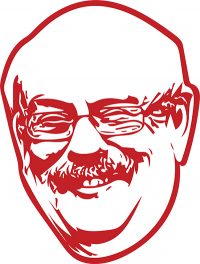Ohio Workers Compensation Hearing
As an attorney I go to multiple hearings nearly everyday at the Industrial Commission. The majority of the issues at these hearings involve either the allowance of the claim, an additional condition, or treatment/medication. At the hearing there will either be a District Hearing officer(if it is the first hearing or a Staff Hearing Office. Your attorney will be at the hearing, and either an attorney or third party administrator will be present on behalf of the employer.
I think the tendency for the injured worker at these hearings is to feel as if they are “guilty” or that they have done something wrong. Let me tell you that you have not done anything wrong. You did not choose to become injured, what happened happened. Therefore when I or your attorney asks to describe how you got hurt, please describe how you were hurt in a matter of fact, understated manner.
Exaggerating or overstating how you were injured will not add spice to your testimony. You want to be consistent in how you describe the manner in which you were injured. So if your injury involved lifting a box in one singular event, you do not want to then qualify that you had pain for months. Inconsistency will kill your claim.
What you must never do at a hearing is lie. Never, ever lie at a hearing. The hearing officers have heard thousands of individuals testify at hearings. Their lie detecting skills are sharpened to an almost supernatural degree. If you lie, your claim will be denied.
At the Industrial Commission hearing tell the truth, be consistent, testify in a matter-of-fact manner. If the facts are on your side, you will have a good chance your claim will be allowed, or your comp will be granted, or your treatment will be authorized.
“I Went to My Initial Allowance Hearing Without Hiring an Attorney”
A thing that we encounter all too often is an injured worker who went to an Ohio Workers Compensation hearing in Columbus, Mansfield, or Dayton without either hiring an attorney or at the very least consulting one. Most people likely will never have had a work injury in their life. This whole BWC thing is new and bewildering. I think the misconception is that all you have to do is file a claim and then your claim will be allowed. But then the claim is not allowed. I think this topic merits multiple articles so I’m only going to address one here and now. But its a doozy.
No causal connection between the mechanism of injury and condition caused by that injury. What do I mean. When you go to an initial allowance hearing you will be asking that your work injury be allowed. And you are not just asking that “hey I was injured on December 1”, you are asking “I was injured on December 1, and I want my claim to be allowed for a lower back injury, specifically a lumbar sprain.”
Let me illustrate with an example. So assume on December 1, 2018 I was lifting boxes at Amazon onto a conveyor belt. As I was lifting box number #200 I felt a sharp pain in my lower back. I finished out my shift. I went home, iced my lower back, took ibuprofen. The next day I called off sick and went to urgent care. At urgent care the attending doctor did an exam of my lower back. He poked, prodded, and had me do some different movements. He also took a history, basically a description of how I injured my back. Based upon his history and exam, he diagnosed me with a lumbar sprain.
To you and me, it seems pretty that the lifting of box #200 caused my lumbar sprain. The BWC will likely do a physician file review, and that physician may also connect the dots. But if the file review does not connect the dots, you will need a doctor to explicitly say and explain “the lumbar sprain was directly caused by Kip lifting box #200 at work, lifting a box from the ground in the manner described by Kip would likely result in a lumbar sprain.”
This is a pretty simple example. Frankly the BWC physician file review would probably find the connection for us. But I see problems arise where the mechanism of injury is not described or documented well in the initial ER or Urgent Care records, or the mechanism of injury described in one document is different from another document. In these cases we would likely go to the injured workers Ohio workers compensation doctor, present the various pieces of information, and ask the BWC doctor to express his expert medical opinion. The employer or BWC may have their own doctor’s expert medical opinion which contradicts our own, but without our doctor’s opinion connecting the mechanism of injury to the diagnosed conditions, the hearing is already lost before it begins.
Even if you are the nicest, most compelling, hardest working injured worker, and you bring the Ohio Workers Compensation hearing officer to tears during your hearing, if you still do not have a connection between the mechanism of injury and the diagnosed condition, the hearing officer will have no other option but to deny your claim.
You receive the industrial commission order in the mail denying your claim. You freak out, and you decide to then get an attorney. Your attorney then has to scramble to communicate with your BWC doctors to get the supporting documentation.
So as always if you have a work injury and you are not sure what to do, call a workers comp attorney at Malek & Malek. We offer a free consultation, we would love to talk with you.

